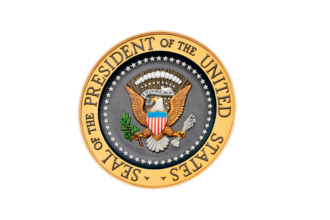Globally-minded investors are eagerly observing the US presidential contest since the result would majorly affect the biggest economy in the world. Though the outcome is still unknown, especially in Asia, the worldwide markets have already started to respond to the expected changes in policy. Wednesday witnessed generally more robust benchmark stock indices throughout the area and a substantial rise in the US dollar, indicating investor mood.
- When Will the Election Results Be Finalized?
- What Is Driving the Surge in Futures Trading and Bitcoin?
- How Are Trump's Trade Policies and Foreign Relations Affecting Global Markets?
- What Impact Could Trump's Tax Cuts Have on the Economy?
- What Could a Kamala Harris Presidency Mean for Global Trade and Policy?
- What Key Economic Events Should Investors Watch This Week?
Trump vs the Fed: Will This Clash Shake the U.S. Economy?
The benchmark Nikkei 225 stock market climbed 2% in Japan, while Australia’s ASX 200 saw about 1% increase. In mainland China, the Shanghai Composite Index stayed the same, but the Hang Seng index of Hong Kong dropped somewhat noticeably, roughly 2.5%. Investors closely monitor the US election, particularly considering the possible impact on international trade and economic policy.
When Will the Election Results Be Finalized?
With important swing states anticipated to take days to complete tallying votes, the outcome of the US election is far from definite despite market fluctuations. The tremendous stakes of the election, which affect world trade, legislative environments, and international relations, accentuate this uncertainty. The election outcome is more than simply a local US matter for many investors; it’s a worldwide problem influencing the direction of world economic policies.
What Is Driving the Surge in Futures Trading and Bitcoin?
Futures trading on significant US market indices were heading noticeably higher, sustaining the increasing trend from yesterday. This followed the closing of nearly 1% higher Dow Jones Industrial Average, S&P 500, and Nasdaq. Attracting more interest from investors, Bitcoin, the biggest cryptocurrency in the world, shot to a fresh record high of almost $75,000 (£58,145).
Against a basket of other significant currencies, including the euro, pound, and Japanese yen, the US dollar likewise appreciated more than 1%. This strengthening of the US dollar indicates the increased expectation about the election outcomes and their possible economic repercussions.
How Are Trump's Trade Policies and Foreign Relations Affecting Global Markets?
With his pledges of sharply raising trade duties, especially on China, former President Donald Trump’s economic views are generating specific worry in Asia as the election approaches. Should he be re-elected, Trump has promised to put hefty taxes on Chinese imports, which has alarmed world investors.
Furthermore, Trump’s more isolationist approach to global policy casts doubt on his dedication to safeguarding Taiwan against a possible Chinese attack. Taiwan is still an important actor in the world economy since it produces semiconductor chips, essential for the technology driving the world market.
What Impact Could Trump's Tax Cuts Have on the Economy?
Domestically, American companies have generally embraced Trump’s tax-cutting program; many hope for reduced corporate tax rates. Should Trump be re-elected, tax cuts and pro-business measures could cause inflation to rise and maybe result in lower rate reductions.
This business-friendly policy may have mixed results: while it would boost development in some areas, it might also cause inflation, indirectly affecting the world economic situation.
What Could a Kamala Harris Presidency Mean for Global Trade and Policy?
Conversely, should Vice President Kamala Harris prevail in the election, many investors hope for a continuation of President Joe Biden’s more consistent and measured approach to world trade and foreign policy. Harris’s policies are supposed to preserve current affairs, particularly in areas like tariffs and trade flows.
A possible Harris presidency is also expected to involve more involvement in enforcing rules in sectors including banking and healthcare, which have witnessed notable deregulation under Trump. Harris’s ideas on renewable energy and climate change are perhaps helpful for green energy companies, including solar firms and electric vehicle makers.
What Key Economic Events Should Investors Watch This Week?
Investors also have other significant economic events this week to concentrate on. The US Federal Reserve is scheduled to declare its most recent interest rate decision on Thursday; financial markets will attentively examine this action. Jerome Powell, the chair of the Federal Reserve, will have particular attention since investors need direction on the future course of US monetary policy.
Moreover, on Friday, Chinese officials are supposed to divulge more specifics on Beijing’s strategies to counteract the slowing growth of the second-largest economy. These pronouncements will probably impact world trade dynamics and investor attitudes, especially in Asia.
Investors are negotiating a convoluted and uncertain global economic environment as the US election looms. The election will be a significant driver of future economic changes. Whether it’s Trump’s harsh trade policies or Harris’s emphasis on sustainability, the globe will closely observe how the election outcomes will impact the global economy in the following months.







